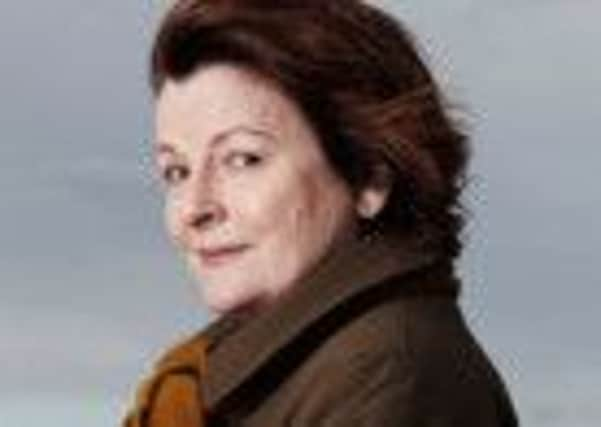TV REVIEW: Vera, Dylan Thomas and Masterchef


Ann Cleeves, the crime fiction writer who brought us Shetland earlier this year, is back again. This time with Vera (ITV).
Vera, now in its fourth series, is still struggling to convince, despite being played by one of our best female actors (we used to be able to call them an ‘actress’), in Brenda Blethyn.
Advertisement
Hide AdAdvertisement
Hide AdVera has father issues. Actually, Vera has more father issues than anyone else since a young Prince Hamlet personified his teenage angst in the ghostly figure of his father.
Vera doesn’t personify her issues though - she voices them. Unfortunately, she voices them in a whingey whiney way any teenager would be proud of.
Setting and plots are what we’ve become used to from Cleeves: family traumas set against a stunning landscape. This time in the wilds of Northumberland, somewhere I’ve always wished I’d visited more every time I see it on the small screen.
One of our most successful and prolific screenwriters, Andrew Davies, also returned this weekend with the highly ambitious Dylan Thomas: A Poet in New York (BBC2).
Advertisement
Hide AdAdvertisement
Hide AdIn many ways this was a triumph. Tom Hollander, two stones heavier than in his recent outing in Rev, produced a convincing attempt as the drunk and disintegrating poet, even managing to get close enough to the iconic poetry-reading voice.
The peripheral performances of Phoebe Fox (Liz), Ewen Bremner (John Malcolm Brinnin) and Essie Davis (Caitlin) were very sharp, all trying to restrict Thomas’ consumption of whiskey and women to proportions that wouldn’t kill him. A project doomed to failure.
Despite all of this, it didn’t quite pull it off for me. The juxtaposition set up in the first few minutes of New York City, the scene of Thomas’ death, and Fern Hill, the farm in rural west Wales where Thomas spent his boyhood holidays, wasn’t fully exploited.
Though I hate to say it, the Laugharne sections, where Thomas lived in the famous boathouse, got in the way. The scenes were beautifully shot, even poetically at times, but these sections told a different aspect of Thomas’ life. As did the flashback scenes with his father.
Advertisement
Hide AdAdvertisement
Hide AdGiven such enormous complexities of Thomas’ short life of 39 years, anything but the most focused of projects was always likely to fall into the trap of tying to cover too much ground. Perhaps, a television series would have been the better format.
Where the drama didn’t completely fail was with the poetry. We were reminded that this superstar, almost rock star, public persona was produced by a poet. Hard to believe today, when ‘genius’ is counted by how many votes some aspirant gets on a reality TV show.
It was the poetry that spoke of Thomas’ life and anticipated his death. Few such lines are so much in our public poetic consciousness: “And death shall have no dominion”, “Rage, rage against the dying of the light”, “Time held me green and dying”, “After the first death there is no other”.
Another towering genius of the twentieth century turned up in finals weeks of Masterchef (BBC1). Ferran Adrià, former Chef de Patron at the world’s greatest and most influential restaurant, El Bulli, was the surprise judge in the penultimate programme.
Advertisement
Hide AdAdvertisement
Hide AdIn this round it was young Jack, only 21, who shone, cooking what Snr Adrià judged as Michelin two-star food. To give an idea of what this means as an amateur: it’s the equivalent of doing some jogging in your spare time and then turning up to win a silver medal at an international competition.
However, in the final, watched by seven million viewers, it was Ping Coombes, with her Malaysian-inspired meals which won the day. The format remains great, I just wish we didn’t have to be shouted at by Torrode and Wallace for the six weeks it’s on.